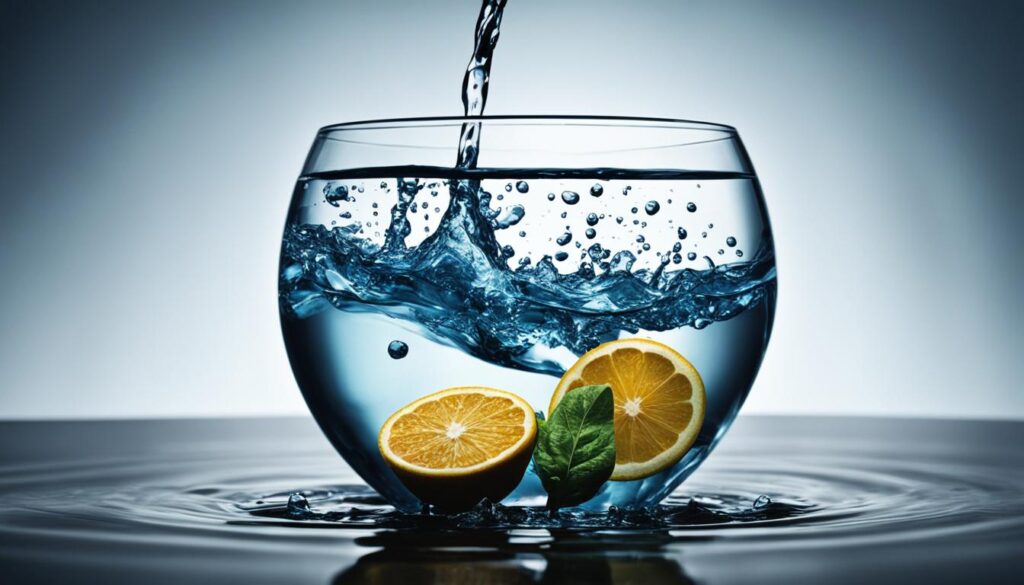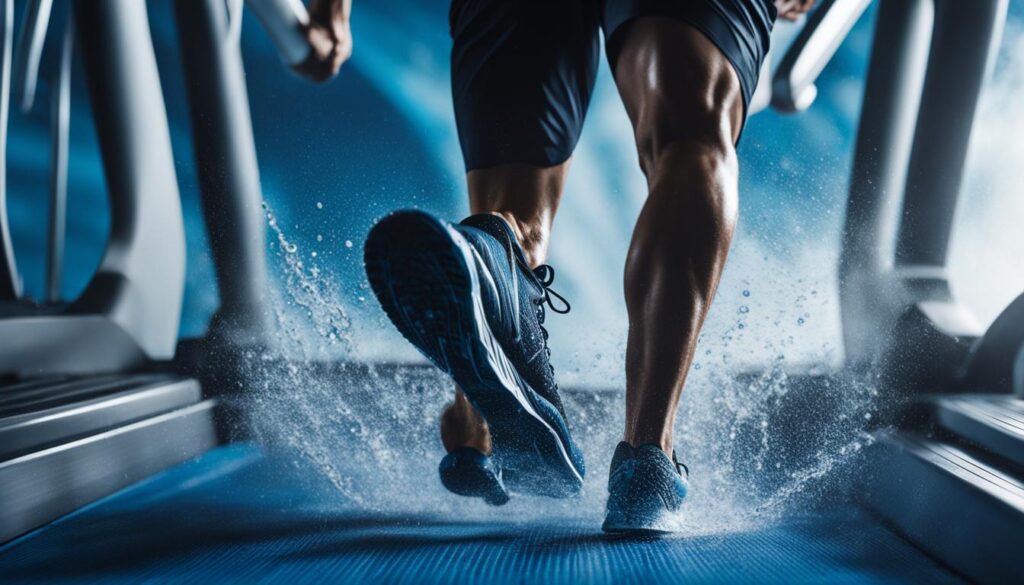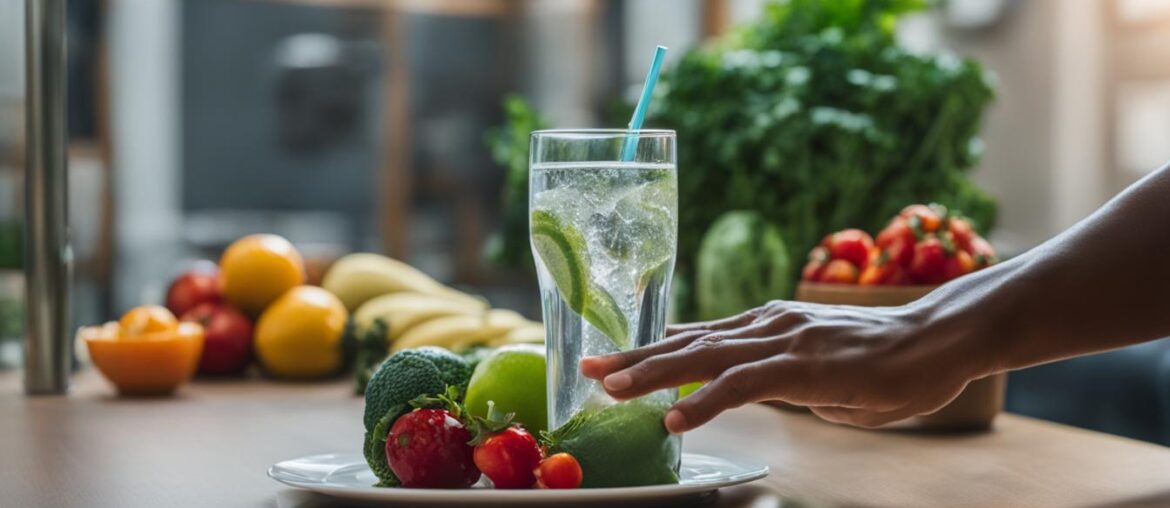Are you looking for a simple and effective way to enhance your weight loss journey (check out my post on weight loss journey here)? Look no further than the water challenge! Incorporating this challenge into your daily routine can have tremendous benefits for your weight loss goals. In this article, we will explore the various ways in which drinking water can aid in weight loss, and how you can increase your water consumption for maximum results.
Drinking water is not only important for staying hydrated, but it can also play a significant role in weight management. By understanding the connection between water and weight loss, you can take advantage of this natural resource to support your healthy lifestyle.
Water can act as a powerful appetite suppressor, helping to keep those unwanted cravings at bay. Additionally, it can stimulate your metabolism, making it more efficient in burning calories. By increasing your water intake, you can reduce liquid calorie consumption and improve exercise performance.
The benefits of drinking water for weight loss go beyond just shedding those extra pounds. It can also contribute to waste removal, fat burning, and even improve your mood and stress levels. So, are you ready to take on the water challenge for healthy weight loss?
Key Takeaways:
- Drinking water can suppress appetite and promote satiation, assisting in weight loss.
- Water stimulates metabolism and can increase calorie burning.
- Choosing water over high-calorie beverages can significantly reduce liquid calorie intake.
- Proper hydration supports exercise performance, endurance, and muscle function.
- Water facilitates waste removal, fat burning, and maintains overall hydration.
Water as an Appetite Suppressor
Drinking water can have a powerful impact on appetite suppression. It works by reducing thirst, which is often mistaken for hunger, and promoting satiation. When you feel thirsty, your body may interpret it as a signal to eat, leading to unnecessary calorie consumption. By staying hydrated, you can effectively curb those false hunger cues.
Water also helps promote satiation by stretching the stomach and signaling fullness to the brain. When your stomach is filled with water, it sends signals to the brain that you’ve consumed enough food, reducing the urge to eat more. Research has shown that drinking water before a meal can lead to decreased food intake, making it an effective strategy for weight management.
So, the next time you feel hungry, try drinking a glass of water first to see if your thirst was mistaken for hunger. By incorporating this simple practice into your daily routine, you can harness the appetite-suppressing benefits of water and support your weight loss efforts.
“Drinking water before a meal can lead to decreased food intake.”
The Power of Water in Promoting Satiation
Water plays a critical role in promoting feelings of satiation. When you drink water, it fills up your stomach, creating a physical sensation of fullness. This physical fullness is then communicated to the brain, signaling that you have consumed enough food. By incorporating water into your meals and snacks, you can enhance your feelings of satiety and reduce the tendency to overeat.
In addition to promoting satiation, water can also support your weight loss journey by being a calorie-free beverage. Unlike sugary drinks or high-calorie beverages, water contains no calories, making it an ideal choice for hydration and appetite control.
To visualize the impact of water on appetite suppression and satiation, consider the following comparison:
| Drink | Calories | Amount Consumed | Satiety Level |
|---|---|---|---|
| Soda | 150 calories | 12 ounces | Moderate |
| Juice | 120 calories | 8 ounces | Moderate |
| Water | 0 calories | 8 ounces | High |
As shown in the table above, water stands out as a calorie-free option that can effectively promote satiation. By choosing water over calorie-dense beverages, you can reduce your overall calorie intake and support your weight loss goals.
Avoid Mistaking Thirst for Hunger
Thirst is often mistaken for hunger, leading to unnecessary calorie consumption. When you’re dehydrated, your body can send signals that mimic feelings of hunger. These signals can be misinterpreted, causing you to eat when what you really need is water.
By staying properly hydrated throughout the day, you can minimize the chances of confusing thirst with hunger. Make a habit of drinking water regularly, especially when you start feeling hungry. This simple practice can help prevent unnecessary snacking and contribute to your weight loss efforts.
Incorporating water as an appetite suppressor in your weight loss journey can be a game-changer. By staying hydrated and recognizing the signs of thirst, you can effectively manage your appetite and support your overall health and wellness.
Water and Metabolism

When it comes to weight loss, the role of water in our metabolism cannot be overlooked. Drinking water can actually stimulate our body’s metabolic processes and increase calorie burning, especially when the water is cold. This is due to a phenomenon called thermogenesis, which is the process of heat production in the body.
Thermogenesis occurs when our body burns calories to produce heat, thus increasing our metabolic rate and energy expenditure. Interestingly, a study found that drinking water at a temperature of 71°F (22°C) resulted in a significant 30% increase in metabolic rates compared to baseline levels. This indicates that water can have a thermogenic effect on our metabolism.
However, it’s important to note that the effects of thermogenesis on weight loss may not necessarily lead to significant calorie deficits on their own. While drinking cold water can temporarily boost metabolism and calorie burning, the overall impact on weight loss may be modest. Therefore, it’s essential to combine adequate water intake with a balanced diet and regular exercise for sustainable weight management.
The Impact of Water Temperature on Metabolism
Water temperature can play a role in the thermogenic effect it has on our metabolism. Cold water is believed to be more effective at stimulating thermogenesis compared to water at room temperature or warmer. The cold temperature of the water may require our body to work harder to maintain its normal temperature, resulting in increased calorie burning.
While the impact of water temperature on metabolism is intriguing, it’s important to note that the overall effect may vary from person to person. Factors such as body composition, age, and individual metabolic rates can influence the degree of thermogenesis experienced after drinking cold water. Therefore, it’s crucial to listen to your body and choose a water temperature that feels comfortable for you.
| Water Temperature (°F) | Effect on Metabolic Rates |
|---|---|
| 71°F (22°C) | 30% increase in metabolic rates |
While the available data suggests that water temperature can impact metabolism, further research is needed to fully understand its mechanisms and long-term effects on weight management.
Stay hydrated and explore the potential benefits of incorporating cold water into your weight loss journey. Remember that water alone is not a magic solution for weight loss, but it can support your overall efforts when combined with a healthy lifestyle.
Water and Liquid Calorie Intake
When it comes to weight loss, every calorie counts. That’s why replacing high-calorie beverages with water can be a game-changer. Unlike soda or juice, water contains no calories, making it a smart and refreshing choice for those looking to reduce their liquid calorie intake.
By opting for water over sugary drinks, you not only hydrate your body but also significantly cut down on empty calories. Research suggests that replacing diet beverages with water may even contribute to weight loss.
It’s important to note, however, that the calorie savings from drinking water alone may not lead to substantial weight loss. Water should be paired with a healthy diet and regular exercise for optimal results.
Choosing water over high-calorie beverages can help you reduce your overall liquid calorie intake, supporting your weight loss goals and contributing to a healthier lifestyle.
As a practical tip, keep a reusable water bottle with you throughout the day. This makes it easier to reach for water instead of reaching for sugary drinks when thirst strikes.
Comparing Water to High-Calorie Beverages
Let’s take a closer look at the difference between water and some common high-calorie beverages:
| Beverage | Calories per 8 oz serving |
|---|---|
| Water | 0 |
| Soda | 96 |
| Orange Juice | 112 |
| Sports Drink | 50 |
As you can see, water is the clear winner in terms of calorie content. By choosing water over these high-calorie options, you can significantly reduce your daily calorie intake, making it easier to achieve and maintain a healthy weight.
Image: Visual representation emphasizing the importance of choosing water over high-calorie beverages.
Water and Exercise Performance

When it comes to exercise, staying hydrated is essential for optimal performance. Water plays a crucial role in maintaining hydration levels during physical activity, allowing your body to function properly and perform at its best.
One of the key functions of water during exercise is its ability to dissolve electrolytes. Electrolytes, such as sodium, potassium, and magnesium, are essential for muscle contractions and nerve impulses. By staying hydrated, you ensure that these electrolytes are adequately distributed throughout your body, helping to prevent muscle cramps and enhance muscle function.
Dehydration, on the other hand, can have negative effects on your exercise performance. When your body doesn’t have enough water, it can lead to muscle breakdown and decreased energy levels. Proper hydration before, during, and after a workout is crucial to prevent dehydration and maintain your stamina.
To improve your exercise performance, it’s important to prioritize hydration. Here are some key tips:
- Start your workout well-hydrated by drinking water before you begin. Aim to drink 16-20 ounces of water at least 2 hours before exercising.
- During your workout, drink water at regular intervals. The American Council on Exercise recommends drinking 7-10 ounces of water every 10-20 minutes while exercising.
- After your workout, replenish your fluid levels by drinking water. Aim to drink 20-24 ounces of water for every pound lost during exercise.
By properly hydrating before, during, and after exercise, you can improve your endurance, decrease fatigue, and increase calorie burn. Water is a simple yet powerful tool to support your fitness goals and enhance your overall exercise experience.
Water for Waste Removal and Fat Burning

Drinking water plays a vital role in facilitating waste removal and promoting fat burning in the body. By staying adequately hydrated, you can support your body’s natural detoxification processes and optimize your fat metabolism.
Firstly, water promotes urine production, which is essential for eliminating waste products from the body. When you drink enough water, your kidneys can effectively filter toxins and metabolic byproducts, flushing them out through urine. This helps maintain healthy kidney function and prevents the accumulation of waste substances that can lead to urinary tract infections and kidney stones.
In addition to promoting urine production, water also keeps stools soft and helps prevent constipation. A well-hydrated digestive system ensures smooth bowel movements, aiding in the efficient removal of waste from the body.
The Role of Water in Breaking Down Fat
Water may also play a role in breaking down fat for energy. While more research is needed to confirm the effects in humans, it is believed that water can increase lipolysis, the process of breaking down stored fat.
Studies suggest that water could potentially expand cell volume, leading to an improved fat metabolism. By increasing the volume of fat cells, lipolysis may be enhanced, resulting in more efficient fat breakdown. However, further research is required to fully understand and substantiate these effects.
While the exact mechanisms are not yet fully understood, incorporating adequate water intake into your weight loss journey is beneficial for overall waste removal and fat metabolism. Keep in mind that water alone is not a magic solution for weight loss but an important component of a comprehensive approach that includes a balanced diet and regular exercise.
In the next section, we will explore the importance of water in improving motivation and reducing stress during weight loss.
Conclusion
Incorporating the water challenge into your weight loss journey can have numerous benefits. Drinking water can help suppress your appetite, stimulate your metabolism, reduce calorie intake, and enhance exercise performance. It also supports waste removal, aids in fat burning, improves motivation, reduces stress, and promotes overall hydration.
To reap the benefits of water for weight loss, aim to drink at least 64 ounces (8 cups) of water daily. Combine this with a healthy diet, regular exercise, quality sleep, and stress management for optimal weight loss success.
Remember, water is a crucial element in your journey towards a healthier weight. So make it a priority to incorporate water into your daily routine and experience the positive effects it can have on your weight loss efforts.




